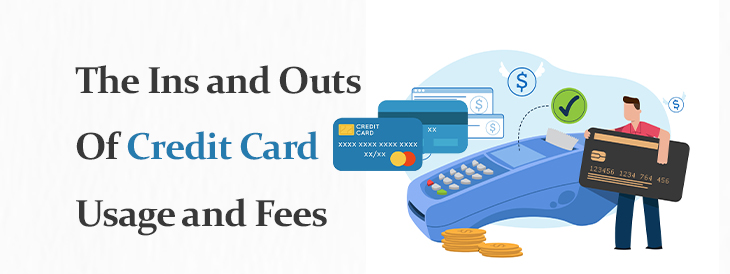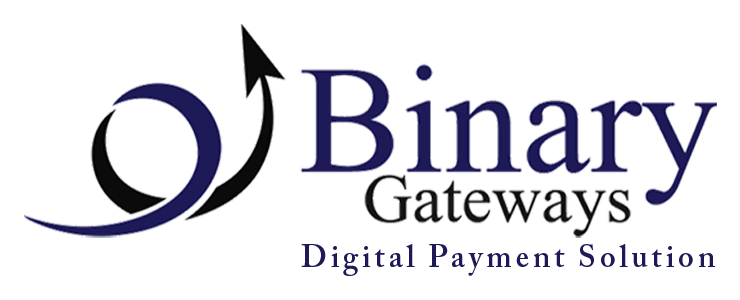The Ins and Outs of Credit Card Usage and Fees
The Ins and Outs of Credit Card Usage and Fees

Have you ever wondered how does a credit card work? Credit cards are incredibly useful financial tools, allowing you to purchase goods and services and build your credit score. But how do they actually work? In this blog post, we’ll explain the ins and outs of credit card usage and fees so you can make the most of this powerful financial tool.
How do credit card companies make money?
Credit card companies may seem like generous providers of easy money, but in reality, they’re highly profitable businesses that rake in billions of dollars every year. So how do they make all that money?
One of the primary ways credit card companies earn profits is through interest payments. When you carry a balance on your credit card, the company charges you interest on that balance each month, which can add up quickly over time. These interest charges can vary based on your credit score, with higher-risk borrowers typically paying more in interest.
Credit card companies also make money through fees. Many credit cards charge annual fees, balance transfer fees, late fees, and foreign transaction fees, among others. These fees can range from a few dollars to hundreds of dollars per year, depending on the card and the usage.
Credit card companies also earn revenue from merchants who accept their cards. Every time you make a purchase with your credit card, the merchant pays a fee to the card company, which is typically a percentage of the purchase amount. This is known as interchange fees, and it can add up to a significant source of income for the card issuer.
Finally, credit card companies often partner with other businesses to offer rewards programs and special promotions. These programs incentivize customers to use their cards more frequently, which in turn generates more revenue for the card issuer.
Overall, credit card companies are highly profitable businesses that make money from a variety of sources. By understanding how these companies earn their profits, you can make more informed choices about how and when to use your own credit card.
Some Related Blogs
- Tverything You Need To Know About Payment Aggregators
- How To Secure Reliable Payment Processing For Adult Business
- The Benefits Of Merchant Accounts For Mlm Companies
- How To Choose A Money Services Business Payment Processor
What are the different types of credit cards?
Credit cards come in a variety of types, each offering different benefits and rewards. Here are some of the most common types of credit cards:
- Rewards credit cards – These credit cards offer rewards or points for each dollar spent, which can be redeemed for merchandise, cash back, or travel rewards.
- Travel credit cards – These credit cards are geared towards frequent travelers, offering rewards such as airline miles or hotel stays.
- Balance transfer credit cards – These credit cards allow you to transfer high-interest debt from another card to a new card with a lower interest rate.
- Secured credit cards – These credit cards require a deposit, usually equal to the credit limit, and are designed for individuals with no credit history or poor credit scores.
- Cashback credit cards – These credit cards offer a percentage of cash back on purchases made with the card.
- Business credit cards – These credit cards are designed for small business owners and offer rewards and benefits specific to business expenses.
Before choosing a credit card, consider your spending habits and financial goals to determine which type of card will benefit you the most.
How do I use my credit card wisely?
Credit cards can be an incredibly useful tool for managing your finances and building your credit score, but they can also lead to financial troubles if not used properly. Here are some tips on how to use your credit card wisely:
- Set a budget: Before using your credit card, make sure you have a budget in place that accounts for your expenses and the amount of credit you can afford to pay back each month.
- Pay your balance in full: One of the best ways to use your credit card wisely is to pay your balance in full every month. This not only helps you avoid interest charges. But it also shows lenders that you can responsibly manage your debt.
- Avoid unnecessary purchases: While it may be tempting to use your credit card for everyday expenses. It’s important to only charge what you can afford to pay back. Avoid using your credit card for impulse buys or non-essential items.
- Monitor your spending: Keeping track of your credit card spending can help you stay within your budget and avoid overspending. You can do this by using a budgeting app or simply keeping a record of your transactions.
- Keep your credit utilization low: Your credit utilization, or the amount of credit you’re using compared to your credit limit. Plays a big role in your credit score. Aim to keep your utilization below 30% to show lenders that you’re a responsible borrower.
By following these tips. You can use your credit card as a tool to build credit. Manage your finances, and avoid unnecessary debt. Remember, responsible credit card usage starts with a solid financial plan and a commitment to sticking to it.
What are the fees associated with credit card usage?
Credit card usage comes with various fees, which can add up over time. It’s essential to understand these fees and how they can affect your credit card balance. Below are some common credit card fees to look out for:
- Annual fees: Some credit cards charge an annual fee for using the card, typically between $50 and $500. If you’re considering a card with an annual fee, make sure to weigh the benefits against the cost to see if it’s worth it.
- Late payment fees: If you don’t pay your credit card bill on time, you’ll incur a late payment fee. This fee can be as high as $35, so it’s crucial to pay your bills on time to avoid unnecessary charges.
- Cash advance fees: If you use your credit card to get cash from an ATM, you’ll be charged a cash advance fee. This fee is typically 2-5% of the amount you withdraw, so it can quickly add up.
- Foreign transaction fees: If you use your credit card outside of your home country, you’ll likely incur a foreign transaction fee. This fee can be up to 3% of your purchase amount, so it’s best to avoid using your credit card abroad if possible.
- Balance transfer fees: If you transfer a balance from one credit card to another, you’ll incur a balance transfer fee. This fee is typically between 3-5% of the balance you transfer, so it’s essential to consider the cost before making a transfer.
Understanding these fees is crucial to avoiding unnecessary charges and managing your credit card balance effectively. Make sure to read the fine print before signing up for a credit card and always pay your bills on time to avoid late payment fees.
How can I avoid paying interest on my credit card balance?
Credit cards are convenient tools that allow us to make purchases without carrying cash. However, credit cards come with a cost. One of the biggest costs is the interest charged on outstanding balances.
If you don’t pay your credit card balance in full every month, interest charges will be applied to your balance. Here are some tips to avoid paying interest on your credit card balance:
- Pay your balance in full: The best way to avoid interest charges is to pay your balance in full every month. This way, you won’t be charged any interest on your balance.
- Use a 0% APR credit card: Some credit cards offer a 0% introductory APR for a certain period of time. This can be a great option if you have a large purchase coming up or if you want to transfer a balance from another credit card.
- Set up automatic payments: If you have trouble remembering to make your credit card payments, set up automatic payments. This way, your payments will be made on time every month.
- Pay more than the minimum: If you can’t pay your balance in full. Make sure to pay more than the minimum payment. This will help you pay off your balance faster and reduce the amount of interest charged.
- Don’t use your credit card for cash advances: Cash advances typically come with higher interest rates than purchases. If you need cash, consider using a different method, such as a personal loan.
![]()
Email us anytime!
Email customer service 24/7 at info@binarygateways.com
![]()
Call us anytime!
Reach customer care 24/7 at (801) 761-5001
